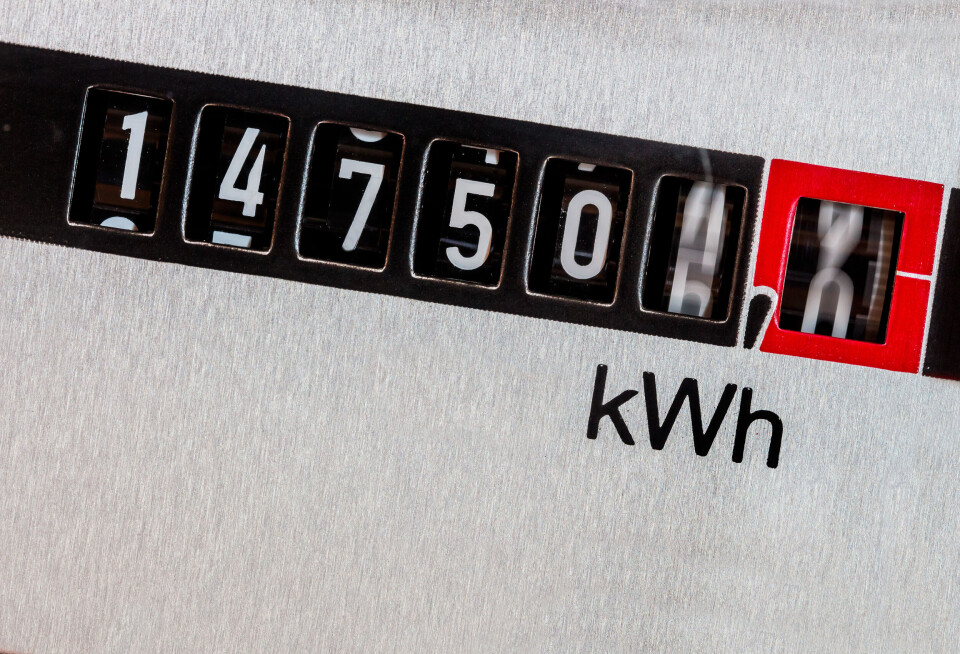-
Brigitte Bardot, global film star and tireless campaigner for animal rights, dies at the age of 91
She rose to international prominence in the 1950s and 1960s before leaving cinema at 39
-
Cars and driving: What's new in France in 2026
Including the new pollution tax on used cars, motorway toll changes and speed camera changes
-
More than a quarter of new car registrations in France are electric
EV sales hit new record in November 2025
France prepares measures to prevent winter energy shortages
The government is hoping to reduce consumption by 10% over two years as suppliers warn of a difficult winter

France’s government is working on measures aimed at reducing the country’s energy consumption by 10% over the next two years, amid concerns that suppliers could experience shortages this winter.
The bosses of France’s three biggest providers – Engie, EDF and TotalEnergies – already called for businesses and individuals to reduce their consumption last month, stating that: "Acting this summer will allow us to be better prepared to face winter and in particular to preserve our gas reserves.”
Read more: French energy companies call for immediate action to cut back on usage
Government task forces have now begun meeting to address the issue, and “efforts will be asked of all businesses,” the ministry in charge of energy transition has said.
“Representatives from the business community should be received by the minister this week. The aim is to find around 10 measures enabling [us] to save energy each time.”
“The priority is to not have to cut off households.”
The new purchasing power law, which is set to be presented to cabinet ministers soon, includes a chapter on how to deal with the situation.
It is expected to recommend the temporary reopening of the Saint-Avold coal-fired power station, and the requisition of gas-fired power stations to shore up the nuclear shortage.
Géry Lecerf, president of Afieg, an association for alternative gas and electricity providers, said: “For several weeks, we have been waiting for the government to communicate strongly, to announce measures, and raise awareness [of the problem].
“Right now, we are currently burning gas to make electricity, the very gas that we may not have enough of this winter. We need to reduce our electricity consumption now.”
Yet, the government has said that it will stop short of advising individual households to save power for now, and will only raise the issue in autumn if needed.
RTE, the managing company responsible for balancing the production and consumption of electricity, has launched a ‘flash’ consultation with companies and suppliers, in a bid to find between 5 and 10 gigawatts of reduced or shifted consumption.
This would be enough to get through the winter ‘peaks’ – the moments when the cold causes a surge in electricity consumption – RTE said.
European production in France is also partly dependent on the actions and situation in neighbouring European nations.
For example, there is a risk that gas rationing in Germany could lead to the closure of its gas-fired power plants, which France relies on for imported power, said Nicolas Goldberg, consultant at Colombus Consulting.
He continued: “This creates enormous uncertainty. We are not sure what will happen on the other side of the border."
“[But] with clear changes that are well communicated to users, the electricity network could save the equivalent of the output of one or two nuclear reactors.”
Suggestions for reducing electricity consumption include changing heating times, so that offices are not being heated during the peak hour of 08:00, or even reintroducing the old system of ‘peak hours’ and ‘low hours’ (when electricity is less expensive, or more expensive).
Advertising screens and lightning around historic monuments could also be switched off when the system comes under strain.
Related articles
People in France urged to reduce energy use in case of Russian cuts
French energy companies call for immediate action to cut back on usage
How to save money on your energy bills in France this winter
Electricity market in France 'completely stuck' says consumer group
























